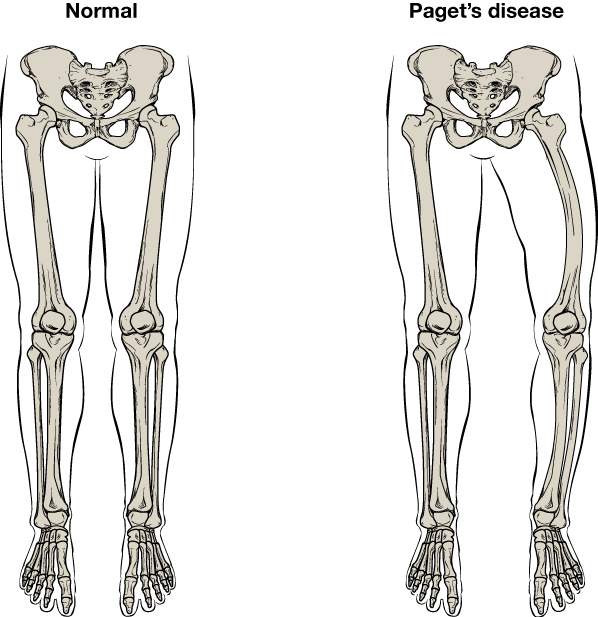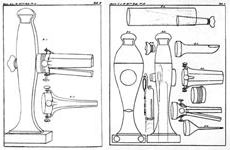|
St. Mark's Hospital (Utah)
St. Mark's Hospital is a 317-bed short-term acute care hospital located in Millcreek, Utah, in the United States. St. Mark's has provided medical services to Salt Lake Valley since its founding in 1872. St. Mark's is accredited by the Joint Commission on Accreditation of Healthcare Organizations (JCAHO) and is a Level II trauma center as verified by the American College of Surgeons. It is classified as a general medical and surgical facility, and is a teaching hospital. St. Mark's hospital has 317 licensed beds, more than 600 physician medical staff, and over 1,500 employees and volunteers. It handles more than 80,000 outpatient visits, 15,000 inpatient admissions, more than 15,000 surgeries annually, as well as more than 3,500 deliveries a year. History Daniel S. Tuttle, the Episcopal bishop, saw the need for a new hospital, and had St. Mark's built with contributions from local businessmen. The initial structure in Salt Lake City, constructed from adobe and consisting of 6 b ... [...More Info...] [...Related Items...] OR: [Wikipedia] [Google] [Baidu] |
Acute Care
Acute care is a branch of secondary health care where a patient receives active but short-term treatment for a severe injury or episode of illness, an urgent medical condition, or during recovery from surgery.Alberta Health ServicesAcute care.Accessed 3 August 2011. In medical terms, care for acute health conditions is the opposite from chronic care, or longer-term care. Acute care services are generally delivered by teams of health care professionals from a range of medical and surgical specialties. Acute care may require a stay in a hospital emergency department, ambulatory surgery center, urgent care centre or other short-term stay facility, along with the assistance of diagnostic services, surgery, or follow-up outpatient care in the community. Hospital-based acute inpatient care typically has the goal of discharging patients as soon as they are deemed healthy and stable. Acute care settings include emergency department, intensive care, coronary care, cardiology, neonatal i ... [...More Info...] [...Related Items...] OR: [Wikipedia] [Google] [Baidu] |
Mental Health
Mental health is often mistakenly equated with the absence of mental illness. However, mental health refers to a person's overall emotional, psychological, and social well-being. It influences how individuals think, feel, and behave, and how they cope with stress, relate to others, and make choices. Mental illness, on the other hand, refers to diagnosable conditions—such as depression, anxiety disorders, or schizophrenia—that disrupt a person's thoughts, mood, behavior, or functioning. It is possible for individuals with mental illness to experience periods of good mental health, just as people without a mental illness may struggle with poor mental well-being at times.[1][2] Mental health encompasses emotional, Psychology, psychological, and social well-being, influencing cognition, perception, and behavior. Mental health plays a crucial role in an individuals daily life when managing stress, engaging with others, and contributing to life overall. According to the World Heal ... [...More Info...] [...Related Items...] OR: [Wikipedia] [Google] [Baidu] |
Urology
Urology (from Ancient Greek, Greek wikt:οὖρον, οὖρον ''ouron'' "urine" and ''wiktionary:-logia, -logia'' "study of"), also known as genitourinary surgery, is the branch of medicine that focuses on surgical and medical diseases of the urinary system and the reproductive organs. Organs under the domain of urology include the kidneys, adrenal glands, ureters, urinary bladder, urethra, and the male reproductive organs (testes, epididymis, epididymides, vas deferens, vasa deferentia, seminal vesicles, prostate, and Human penis, penis). The urinary and reproductive tracts are closely linked, and disorders of one often affect the other. Thus a major spectrum of the conditions managed in urology exists under the domain of genitourinary disorders. Urology combines the management of medical (i.e., non-surgical) conditions, such as urinary-tract infections and benign prostatic hyperplasia, with the management of surgical conditions such as bladder or prostate cancer, kidney st ... [...More Info...] [...Related Items...] OR: [Wikipedia] [Google] [Baidu] |
Trauma Center
A trauma center, or trauma centre, is a hospital equipped and staffed to provide care for patients suffering from major traumatic injuries such as falls, motor vehicle collisions, or gunshot wounds. The term "trauma center" may be used incorrectly to refer to an emergency department (also known as a "casualty department" or "accident and emergency") that lacks the presence of specialized services or certification to care for victims of major trauma. In the United States, a hospital can receive trauma center status by meeting specific criteria established by the American College of Surgeons (ACS) and passing a site review by the Verification Review Committee. Official designation as a trauma center is determined by individual state law provisions. Trauma centers vary in their specific capabilities and are identified by "Level" designation, Level I (Level-1) being the highest and Level III (Level-3) being the lowest (some states have four or five designated levels). The highe ... [...More Info...] [...Related Items...] OR: [Wikipedia] [Google] [Baidu] |
Sleep Disorder
A sleep disorder, or somnipathy, is a medical disorder affecting an individual's sleep patterns, sometimes impacting physical, mental, social, and emotional functioning. Polysomnography and actigraphy are tests commonly ordered for diagnosing sleep disorders. Sleep disorders are broadly classified into dyssomnias, parasomnias, circadian rhythm sleep disorders involving the timing of sleep, and other disorders, including those caused by medical or psychological conditions. When a person struggles to fall asleep or stay asleep without any obvious cause, it is referred to as insomnia, which is the most common sleep disorder. Other sleep disorders include sleep apnea, narcolepsy, hypersomnia (excessive sleepiness at inappropriate times), sleeping sickness (disruption of the sleep cycle due to infection), sleepwalking, and night terrors. Sleep disruptions can be caused by various issues, including teeth grinding (bruxism) and night terrors. Managing sleep disturbances that are seconda ... [...More Info...] [...Related Items...] OR: [Wikipedia] [Google] [Baidu] |
Robot-assisted Surgery
Robot-assisted surgery or robotic surgery are any types of surgical procedures that are performed using robotic systems. Robotically assisted surgery was developed to try to overcome the limitations of pre-existing minimally-invasive surgical procedures and to enhance the capabilities of surgeons performing open surgery. In the case of robotically assisted minimally-invasive surgery, instead of the surgeon directly moving the instruments, the surgeon uses one of two methods to perform dissection, hemostasis and resection, using a direct telemanipulator, or through computer control. * A telemanipulator (e.g. the da Vinci Surgical System) is a system of remotely controlled manipulators that allows the surgeon to operate real-time under stereoscopic vision from a control console separate from the operating table. The robot is docked next to the patient, and robotic arms carry out endoscopy-like maneuvers via end-effectors inserted through specially designed trocars. A surgica ... [...More Info...] [...Related Items...] OR: [Wikipedia] [Google] [Baidu] |
Physical Therapy
Physical therapy (PT), also known as physiotherapy, is a healthcare profession, as well as the care provided by physical therapists who promote, maintain, or restore health through patient education, physical intervention, disease prevention, and health promotion. Physical therapist is the term used for such professionals in the United States, and physiotherapist is the term used in many other countries. The career has many specialties including musculoskeletal, orthopedics, cardiopulmonary, neurology, endocrinology, sports medicine, geriatrics, pediatrics, women's health, wound care and electromyography. PTs practice in many settings, both public and private. In addition to clinical practice, other aspects of physical therapy practice include research, education, consultation, and health administration. Physical therapy is provided as a primary care treatment or alongside, or in conjunction with, other medical services. In some jurisdictions, such as the United Kin ... [...More Info...] [...Related Items...] OR: [Wikipedia] [Google] [Baidu] |
Pain Management
Pain management is an aspect of medicine and health care involving relief of pain (pain relief, analgesia, pain control) in various dimensions, from acute (medicine), acute and simple to chronic condition, chronic and challenging. Most physicians and other health professionals provide some pain control in the normal course of their practice, and for the more complex instances of pain, they also call on additional help from a specific medical specialty devoted to pain, which is called pain medicine. Pain management often uses a interdisciplinarity, multidisciplinary approach for easing the suffering and improving the quality of life of anyone experiencing pain, whether acute pain or chronic pain. Relieving pain (analgesia) is typically an acute process, while managing chronic pain involves additional complexities and ideally a multidisciplinary approach. A typical multidisciplinary pain management team may include: medical practitioners, pharmacists, clinical psychologists, ph ... [...More Info...] [...Related Items...] OR: [Wikipedia] [Google] [Baidu] |
Orthopedic Pathology
Orthopedic pathology, also known as bone pathology is a subspecialty of surgical pathology which deals with the diagnosis and feature of many bone diseases, specifically studying the cause and effects of disorders of the musculoskeletal system. It uses gross and microscopic findings along with the findings of ''in vivo'' radiological studies, and occasionally, specimen radiographs to diagnose diseases of the bones. Causes and effects Orthopaedic disorders may be congenital and there may be hereditary and environmental factors that can affect the normal functioning of the bones, joints, or muscles. Other causes of bone diseases include severe impacts/injuries and weakness in bones/bone loss. The effects of bone disorders will vary with disease. The effects can occur physically, mentally and financially as well as impact the individuals quality of life. Orthopaedic disorders can drastically affect an individual's functional ability. Individuals who have had bone diseases can exper ... [...More Info...] [...Related Items...] OR: [Wikipedia] [Google] [Baidu] |
Oncology
Oncology is a branch of medicine that deals with the study, treatment, diagnosis, and prevention of cancer. A medical professional who practices oncology is an ''oncologist''. The name's Etymology, etymological origin is the Greek word ὄγκος (''ónkos''), meaning "tumor", "volume" or "mass". Oncology is focused on the diagnosis of cancer in a person, therapy (e.g., surgery, chemotherapy, radiotherapy and other modalities), monitoring of patients after treatment, palliative care of people with advanced-stage cancers, Ethics, ethical questions surrounding cancer care, Screening (medicine), screening of patients, and the study of cancer treatments through clinical research. An oncologist typically focuses on a specialty area in cancer treatment, such as surgery, Radiation therapy, radiation, gynecology, gynecologic oncology, geriatrics, geriatric oncology, pediatrics, pediatric oncology, and various organ-specific disciplines (breast, brain, liver, among others). The exp ... [...More Info...] [...Related Items...] OR: [Wikipedia] [Google] [Baidu] |
Vascular Surgery
Vascular surgery is a surgical subspecialty in which vascular diseases involving the arteries, veins, or lymphatic vessels, are managed by medical therapy, minimally-invasive catheter procedures and surgical reconstruction. The specialty evolved from general surgery, general and cardiac surgery, cardiovascular surgery where it refined the management of just the vessels, no longer treating the heart or other organs. Modern vascular surgery includes open surgery techniques, endovascular (minimally invasive) techniques and medical management of vascular diseases - unlike the parent specialities. The vascular surgeon is trained in the diagnosis and management of diseases affecting all parts of the vascular system excluding the coronaries and intracranial vasculature. Vascular surgeons also are called to assist other physicians to carry out surgery near vessels, or to salvage vascular injuries that include hemorrhage control, dissection, occlusion or simply for safe exposure of vascul ... [...More Info...] [...Related Items...] OR: [Wikipedia] [Google] [Baidu] |
Gastroenterology
Gastroenterology (from the Greek gastḗr- "belly", -énteron "intestine", and -logía "study of") is the branch of medicine focused on the digestive system and its disorders. The digestive system consists of the gastrointestinal tract, sometimes referred to as the ''GI tract,'' which includes the esophagus, stomach, small intestine and large intestine as well as the accessory organs of digestion which include the pancreas, gallbladder, and liver. The digestive system functions to move material through the GI tract via peristalsis, break down that material via digestion, absorb nutrients for use throughout the body, and remove waste from the body via defecation. Physicians who specialize in the medical specialty of gastroenterology are called gastroenterologists or sometimes ''GI doctors''. Some of the most common conditions managed by gastroenterologists include gastroesophageal reflux disease, gastrointestinal bleeding, irritable bowel syndrome, inflammatory bowel disease (IBD ... [...More Info...] [...Related Items...] OR: [Wikipedia] [Google] [Baidu] |









